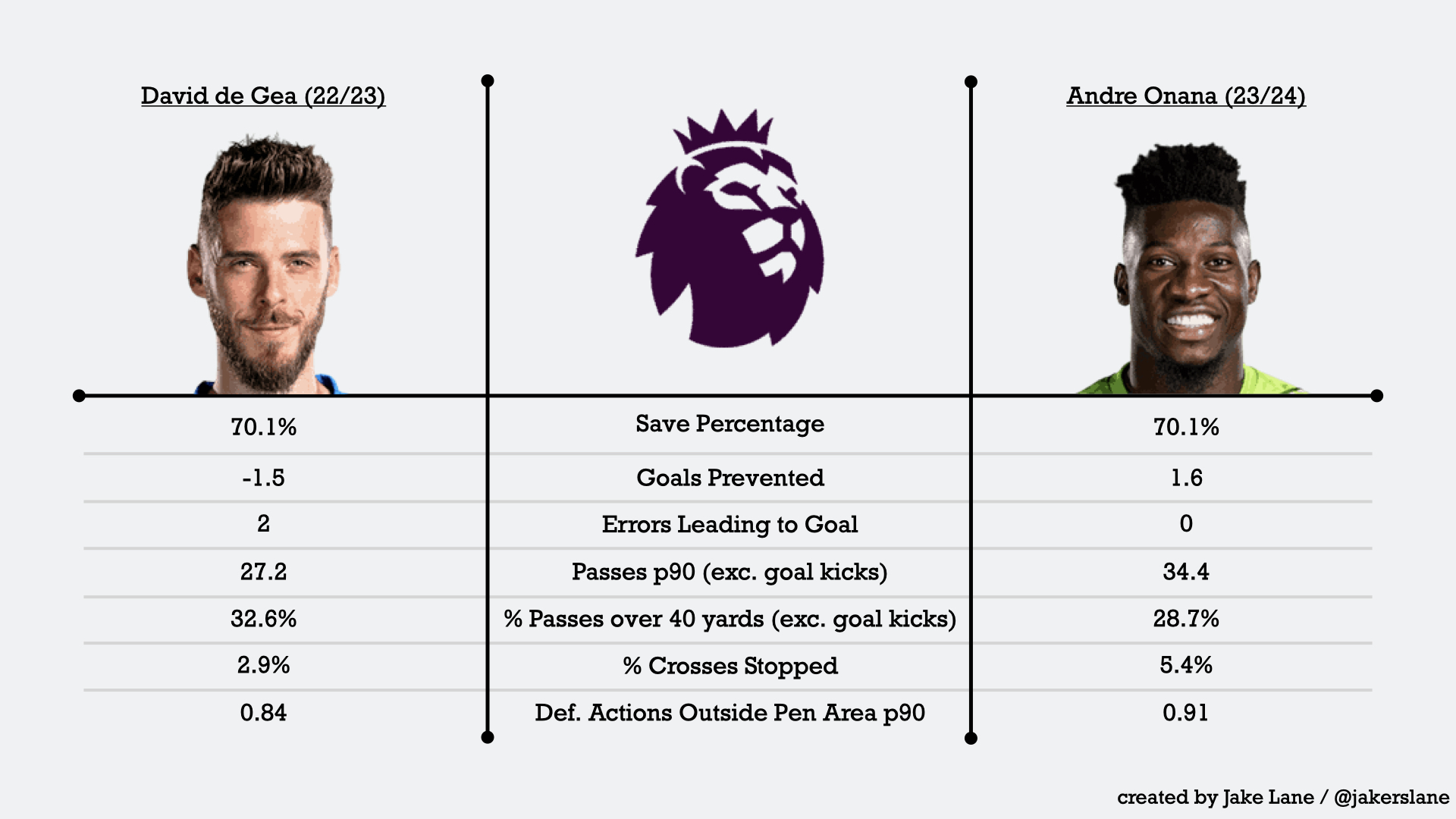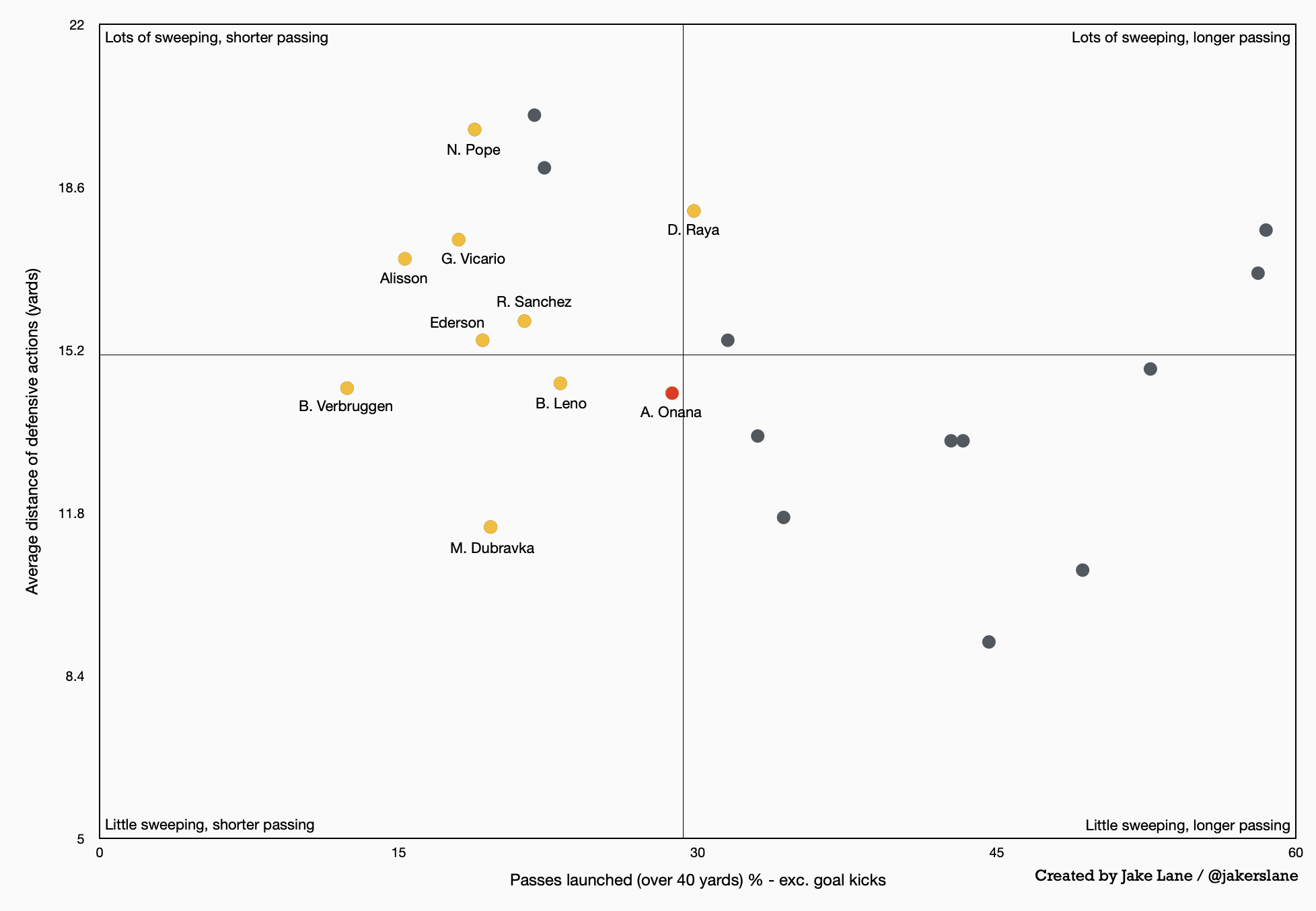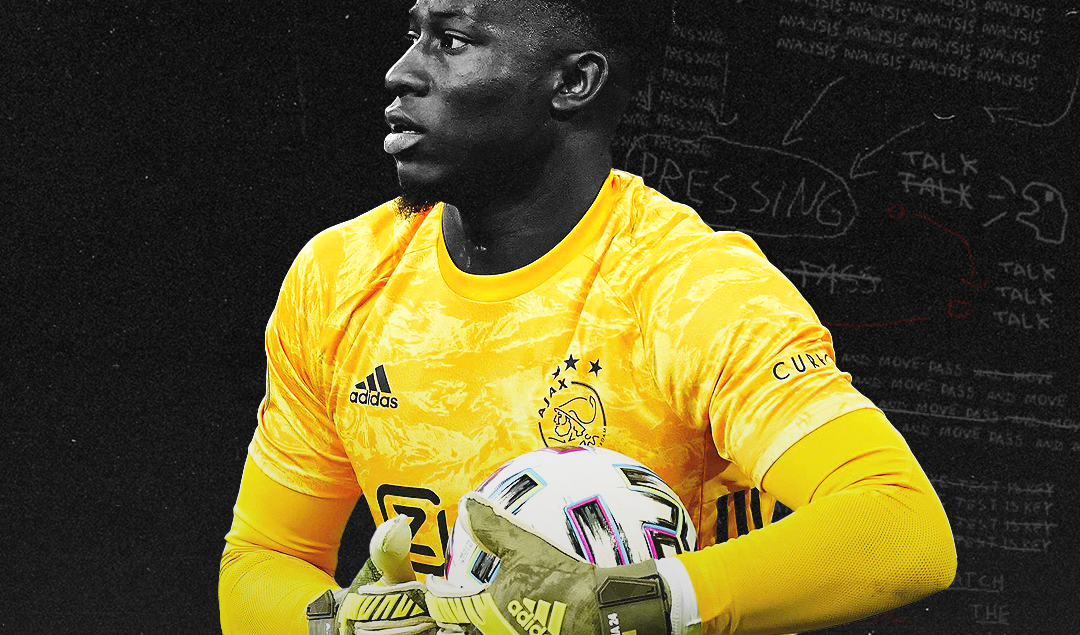Assessing Andre Onana’s Time at Manchester United So Far
Last July, Andre Onana’s move to Manchester United was one of the most anticipated transfers of the summer window. Not only was the incoming Cameroonian goalkeeper replacing David de Gea, who had established himself as a legitimate club legend during his 12 seasons at Old Trafford, but he was also set to be the key piece of Erik ten Hag’s jigsaw, as the manager’s tactical transformation began to truly take shape.
A significant portion of United fans believed that De Gea’s time at the club had come to a natural end. With the 33-year-old’s incredibly costly contract running out, many felt it was time for a new face between the sticks, and one that had the attributes and abilities of a more modern goalkeeper.
Onana certainly fit the bill, having built his reputation at Ajax and Inter as an excellent sweeper-keeper, and one of the best ball-playing goalkeepers in the world. However, as his transfer to Old Trafford materialised, questions were raised by pundits and fans alike about his shot-stopping abilities, in stark contrast to de Gea, whose skillset was traditionally built around preventing goals conceded.
Seven months later, and there are potentially even more question marks over Onana than when he first signed. In fact, the positivity around United heading into the 2023/24 season had dissipated within just a few weeks. Barring a miraculous turnaround in the Premier League, the season will be remembered as a significant disappointment by the Old Trafford faithful. Onana has certainly played his part in United’s failures this season, but exactly how much blame should be directed his way?
Firstly, let’s compare his season so far with David de Gea’s final year at the club. The general rhetoric has been that Onana is an unreliable presence who can’t do the goalkeeping basics of keeping the ball out of the net, whereas De Gea was a human brick wall who might not be able to play out from the back effectively, but consistently rescued his team with miraculous saves, and that simply isn’t true.
Onana’s save percentage this season is exactly the same as De Gea’s was last season – 70.1% – but there is actually quite a difference when you compare the number of goals they prevent. Using post-shot expected goals data (essentially a metric that tells us how likely a goalkeeper is to save a shot), we see that Onana has prevented Manchester United from conceding 1.6 goals, whereas De Gea’s shot-stopping last season meant the club conceded 1.5 goals more than they would have expected to, based on the shots they faced. De Gea also made two errors leading to goals last season, whereas Onana hasn’t made a single one.

This tells us that Onana has actually been a safer pair of hands for United this season than De Gea was last season – making fewer errors, saving shots at the same rate, and preventing goals more effectively. That figure of 1.6 goals prevented is a reflection that Onana’s goalkeeping has statistically been a net-positive for United in the league this season. Unfortunately, it was a remarkably different story in Europe.
The club’s Champions League campaign was their worst ever performance in the competition. They finished bottom of Group A with just one win and a draw, and Onana made a series of mistakes which cost his side dearly. In the Champions League, his save percentage dropped to 57.1%, and he shockingly conceded 2.1 more goals than expected in just six games.
These high-profile errors in the Champions League have been a significant contributing factor to shaping the perception of Onana in the public and the media, but what’s made matters worse is that the Cameroonian has made a habit of drawing unnecessary attention to himself. The position of Manchester United goalkeeper has often been described as ‘the most difficult job in football’ because of the constant pressure and scrutiny that comes with it, and Onana has only tended to aggravate this.
The first glimpse was seen before the season even started. In a pre-season friendly against Borussia Dortmund, just three minutes after putting the Manchester United shirt on for the first time, Onana came sprinting off his line to berate Harry Maguire following a defensive mixup which saw the Cameroonian called into action. Unsurprisingly – as Manchester United stories sell like nothing else – his outburst drew swathes of attention from tabloids across the country.
Kobbie Mainoo: United’s Rising Star Ready to Take the Premier League by Storm
Onana also saw himself steal the headlines for all the wrong reasons in United’s opening game of the season. In the dying seconds of their 1-0 victory against Wolves, he maniacally charged to punch clear a hopeful Wolves cross, and essentially clothes-lined Sasa Kalajdzic. Miraculously, VAR didn’t award a penalty, and United were lucky to hold on to three points, but the narrative was already written. Fittingly, Onana had probably been United’s best player that night, making several impressive saves, but a moment of madness nearly saw him cost his side an important win.
Weeks later, after United had lost 1-0 at home to Bayern Munich, confirming their exit from the Champions League, Onana did an interview with Sky Sports where he said: “You want to tell me that in six months the best goalkeeper in the Champions League last season can become the worst in the world? Nah.” This was just days ahead of Manchester United facing Liverpool at Anfield.
Perhaps the biggest example of Onana drawing unnecessary and unhelpful attention came in the lead-up to the ongoing Africa Cup of Nations. His tumultuous relationship with his national team is well documented, and his inclusion in the Cameroon squad led to complications for both himself and his club.
Manchester United’s form and significant injury list meant they were unhappy about losing a key player for a number of weeks mid-way through the season, and according to reports, Onana was quietly concerned that a prolonged period out of the picture might see him lose his place to backup goalkeeper Altay Bayindir.
Analyzing Manchester United’s Start to the 2023/24 Season Under Erik ten Hag
As such, an agreement was reached that Onana would meet up with the Cameroon squad later than the rest of his teammates, allowing him to play for United in games against Tottenham and Wigan. When he eventually arrived at AFCON, he started in Cameroon’s second group stage game against Senegal.
Onana faced three shots on target, conceded three goals, and was subsequently dropped for their following two games before they were duly knocked out in the Round of 16. This led to many asking – what was all the fuss for? Seemingly, all that was achieved was additional scrutiny on his already heavily-scrutinised position.
Many have also pointed out a number of Onana’s worrying traits and habits. He is often guilty of parrying shots back into the box and into dangerous positions. He also tends to ‘go early’, regularly getting incredibly low to the ground in 1v1s where he is susceptible to chips, or taking pre-emptive steps to one side and conceding in the subsequent gaps he leaves.
That being said, there should be a level of sympathy for him – you could argue that he hasn’t really been given the best platform to succeed. As we have said before, Onana has built a reputation as a sweeper-keeper, and one of the best goalkeepers around with the ball at his feet, but Erik ten Hag’s Manchester United do little to make the most of that.
United fans had hoped that ten Hag would look to replicate the intense high-pressing and positional football that his Ajax sides had found so much success with, but his Manchester United team don’t do a great deal of deep ball circulation or high pressing, often play long direct balls, and retreat into a block to defend. As demonstrated in the graphic below, compared to other Premier League goalkeepers, Onana hasn’t really been given much opportunity to do what he does best.

So, has Onana been a success or a failure for United? To be honest, it’s tough to say. He has unquestionably been an improvement on David de Gea, and his underlying numbers suggest he’s been a net-positive for United in the Premier League. However, he has displayed a number of concerning traits and habits, and has made several high profile errors which have cost United in key moments.
These errors are also contributing to an increasingly negative public perception, and Onana himself isn’t doing much to quell the seemingly endless circus of crisis-reporting against his position and his team. However, you do have to to feel for him slightly, as Erik ten Hag probably isn’t giving him the platform to adequately showcase his best abilities.
If he can keep a low profile, cut out the mistakes, and work on some of his bad habits, he should gradually get to leverage his best abilities more often, as Ten Hag’s side develop tactically with key players returning from injury.
However, with Sir Jim Ratcliffe’s INEOS Sports Group coming in with ambitious plans to restore Manchester United’s reputation as a footballing powerhouse, Onana’s position may become uncertain if he continues to cost his side in key moments and bring unnecessary outside pressure and scrutiny to the club.
By: Jake Lane / @jakerslane
Featured Image: @GabFoligno / Getty Images
